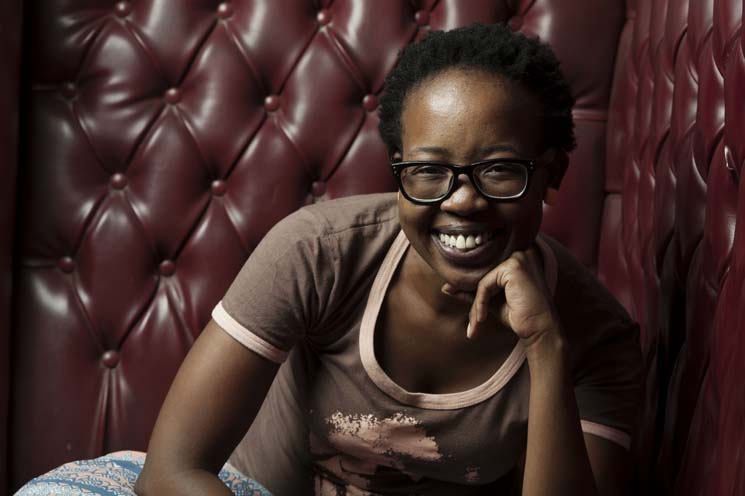Other than paid-for gig work, the average artist does not really offer much in terms of poltical discourse during election season.

As one artist is reportedly to have replied when asked whether or not his performing at a particular political party’s rally could lead to his fans aligning him to that organisation he said, “Hey man, a gig is a gig”.
Beyond the impassioned pleas of Penny Lebyane to government, urging them to invest in local arts, and Simphiwe Dana’s rhetoric on pertinent situations in South Africa, artists have largely been quiet regarding the upcoming voting.
This should not be the case, says poet and musician Ntsiki Mazwai.
“Arts and politics is an obvious combination, because artists reflect what society is going through,” Mazwai says.
“It is important, at all times, to have a voice in what is happening in society.”
The roles are not as clear as they were under the previous dispensation and the terms of reference have changed.

Artist and activist Ntsiki Mazwai poses for pictures following an interview with The Citizen in Newtown, 24 February 2014. Picture: Refilwe Modise
“South Africa is in a potentially dangerous position in that its freedom has exposed new money that has in turn exposed behaviours that come with suddenly having something after having come from nothing,” Mazwai explains.
“And the result is that the role of the artist has been compromised and has lost its value.
“It seems like South Africa fought for its freedom to be like the West. It does not seem like South Africa fought for its freedom to be African.
“If the priority was black conscioussness and the freedom to be black finally, I think that we would be in a different space. Then we would have a dignified nation, a nation who owned who they are.”
Some artists have publicly stated which parties they are affiliated with, but for the most part the calibre of artist or their art is not of great significance to the parties involved. Mazwai feels that artists should steer clear of such political occupations.
“I don’t think an artist should be associated with a political party,” Mazwai says.
“An artist speaks for the people, and I think that once an artist starts speaking on behalf of a political party, then they start thinking about their stomach.
“I think you should always speak for the people because you don’t represent certain policies or agenda of a particular party, but the interests of the people.
“And in the same vein, I can’t make my politics personal. But if you use your craft politically, you put yourself in a position where you can have more change. The responsibility for an artist is a responsibility to the people.”
The current political climate, which includes worries about service delivery protests and incidents like Marikana, encourages active participation in terms of creating art that speaks to these societal challenges.
“Why are we fighting so hard to look like the West and why don’t we have confidence within ourselves?” says Mazwai.
“As South Africans, we have a low collective self-esteem. Just because America, for example, is a bigger country, it does not mean that they produce better art. We need to start to be honest with ourselves and that is what art is supposed to be.”
Support Local Journalism
Add The Citizen as a Preferred Source on Google and follow us on Google News to see more of our trusted reporting in Google News and Top Stories.








